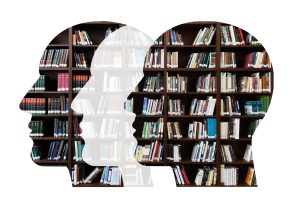Learning Theory: Modern Practice
Welcome to the world of modern learning theory! In today’s fast-paced digital era, traditional learning methods are no longer enough to keep up with the constantly evolving landscape of education. That is where modern learning theory comes in – a dynamic approach to teaching and learning that incorporates the latest research, technology, and strategies to enhance the overall learning experience. In this article, we’ll delve into the fundamentals of modern learning theory and its impact on the practice of education. So, let’s get started!
The Evolution of Learning Theory
Learning theory is the study of how people learn and acquire new knowledge, skills, and behaviors. Traditionally, learning theory was focused on behaviorism, which viewed learning as a stimulus-response process. This approach was based on the idea that behavior is shaped by external factors, and that reinforcement and punishment are key in promoting learning. However, as technology and research progressed, modern learning theories emerged, shifting the focus to cognitive and constructivist approaches.
Cognitive theorists view learning as an active mental process and emphasize the importance of internal mental processes like attention, memory, and problem-solving. On the other hand, constructivist theorists argue that individuals construct knowledge and meaning through their own experiences and interactions with the world. These modern perspectives challenge the idea that learning is only a passive response to external stimuli and instead emphasize the individual’s active role in the learning process.
Key Principles of Modern Learning Theory
1. Active Learning
Modern learning theory views learners as active participants in their own learning. This means that learners are encouraged to engage actively in the learning process through activities that require them to reflect, question, and apply their knowledge. This approach helps to promote deeper understanding and retention of information.
2. Personalization
Every individual has a unique learning style, and modern learning theory recognizes the importance of catering to these individual differences. By providing personalized learning experiences, learners are more engaged and motivated to learn, resulting in better overall learning outcomes.
3. Technology Integration
With the proliferation of technology, modern learning theory emphasizes the integration of technology in education. This allows for more interactive and engaging learning experiences, as well as access to a wealth of information and resources beyond traditional methods.
4. Collaborative Learning
In the modern world, collaboration and teamwork are essential skills. Modern learning theory promotes collaborative learning, where learners work together to solve problems, share ideas, and construct knowledge. This approach not only enhances learning but also promotes important social skills.
Implications for Modern Practice
As educators, it is crucial to understand the principles of modern learning theory and their implications for modern practice. By incorporating these principles into our teaching, we can create more effective and engaging learning experiences for our students. Here are a few examples of how modern learning theory can be applied in practice:
- Incorporating active learning strategies, such as group discussions, debates, and hands-on activities, to promote student engagement and participation.
- Using technology like virtual reality, simulations, and online learning platforms to enhance the learning experience and provide personalized learning opportunities.
- Encouraging collaborative learning through group projects, peer-to-peer feedback, and team-based activities.
- Implementing formative assessment techniques, such as quizzes, polls, and self-assessment, to monitor student progress and provide timely feedback.
By incorporating these strategies and principles, we can create a learner-centered approach to education, where students are actively involved in their learning and are equipped with the skills and knowledge needed for success in the modern world.
In Conclusion
Modern learning theory is a significant shift from traditional approaches to education. By recognizing the active role of learners and incorporating the latest research and technology, educators can create more effective and engaging learning experiences. It’s time to embrace modern learning theory and revolutionize the way we teach and learn.











